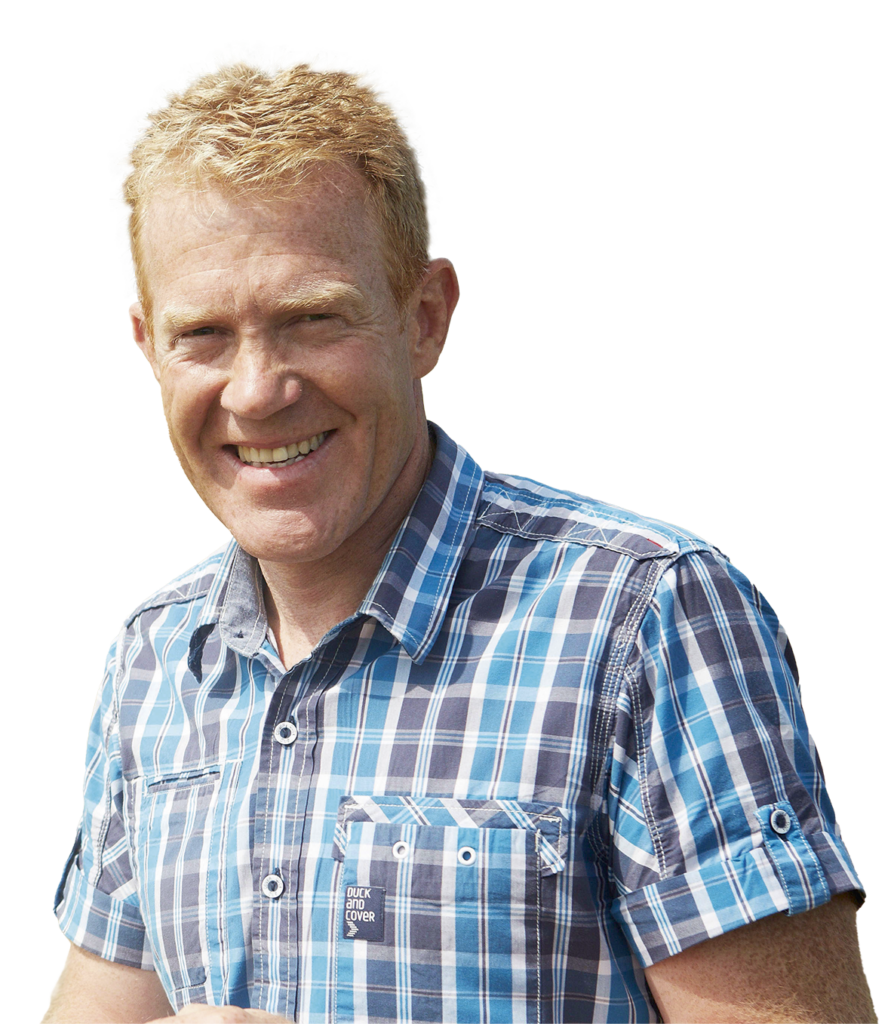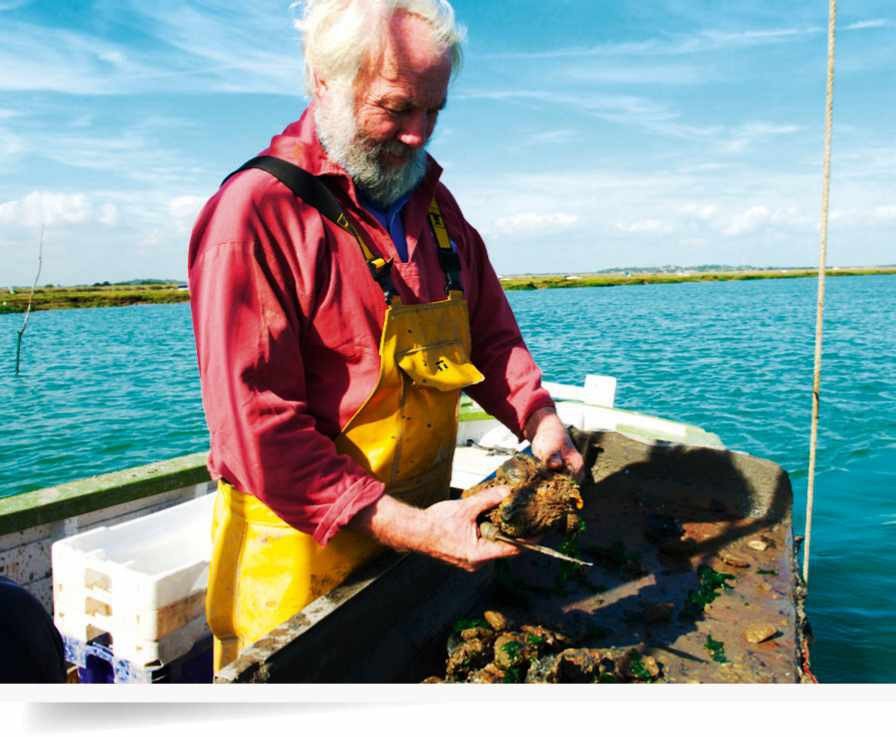A view from the farm
Adam Henson
OUR COASTAL HARVESTS ARE AS IMPORTANT AS EVER

I love the UK coastline. Given half a chance, I’ll be on a sandy West Country beach, island-hopping in Scotland or exploring the streets of a tiny seaside town. I love it. But there’s another side to coastal Britain that fascinates me, and that’s as a working environment. As I turn my thoughts to gathering in the crops at home, thousands of people are involved in harvesting of a different kind.
If you have ever watched the fishing boats sailing in or out of the harbours at Brixham, Newlyn or Grimsby, you’ll know that thousands of families rely on the sea for their livelihoods. The UK fishing fleet has shrunk in recent decades, and it has been more than 20 years since the government department dealing with the industry was known as the Ministry of Agriculture, Fisheries and Food (now called DEFRA), but fishing remains a way of life that is politically important and culturally significant for our island nation. If you have ever walked past a wet-fish stall offering freshly caught Whitby crab or tasty Rye Bay herring, you will appreciate why people are so passionate about it.
CENTURIES OF TRADITION
It’s the same with estuary fishing. On the River Thames at Leigh-on-Sea, the cockle boats moored beside the sand and shingle aren’t just for show. The locals have been gathering cockles from the sticky mud and cooking them in the boiling sheds here for generations. The old way of hand-raking the sandflats at low-tide has been replaced by hydraulic dredges, with an eye on protecting the marine environment and a sustainable stock level. Cockles are traditionally sold with winkles and whelks, and when cockle vendors used to wheel their barrows through London’s gas-lit streets, the only way to measure equal portions was by using a pint glass. Leigh cockles are still sold by the pint today.
“Fishing is a culturally significant way of life for an island nation”
Further up the Essex coast at West Mersea, it’s a bigger, more romantic shellfish that gets heads turning. Oysters have been cultivated in the waters of the River Colne since Roman times and when the oyster season begins in September, the local dignitaries do it in style. The Mayor of Colchester, Town Clerk and Town Sergeant, all dressed in their civic regalia, board a dredger in Pyefleet Creek to read a declaration to open the fishery and pledge their allegiance to the monarch. The Mayor then eats the first, freshly caught oyster of the year, usually with a great flourish and a round of applause.

Another seaside industry – one that’s growing fast – is seaweed farming. Seaweed, or kelp, is used in a wide array of products, from foods and textiles to pharmaceuticals and organic fertilisers, and even as biofuel. But it plays a crucial role in the coastal ecosystem, too, and some conservationists are worried about commercial wild seaweed farming, so much so that the Scottish Government is considering new regulations to strike the right balance and protect important habitats.
NATIONAL GRIT
Meanwhile, if you’re looking for a lasting tribute to the men and women who harvest the waters of Britain, how about this line from a 100-year-old longforgotten Whitehall document: “The inshore fisherman should be perpetuated at all costs, for he comes nearer than any other type of man to embodying those qualities of grit and self-reliance which we all agree to be the greatest of national interest.”
Ask Adam: What topic would you like to know more about?
Email your suggestions to editor@countryfile.com